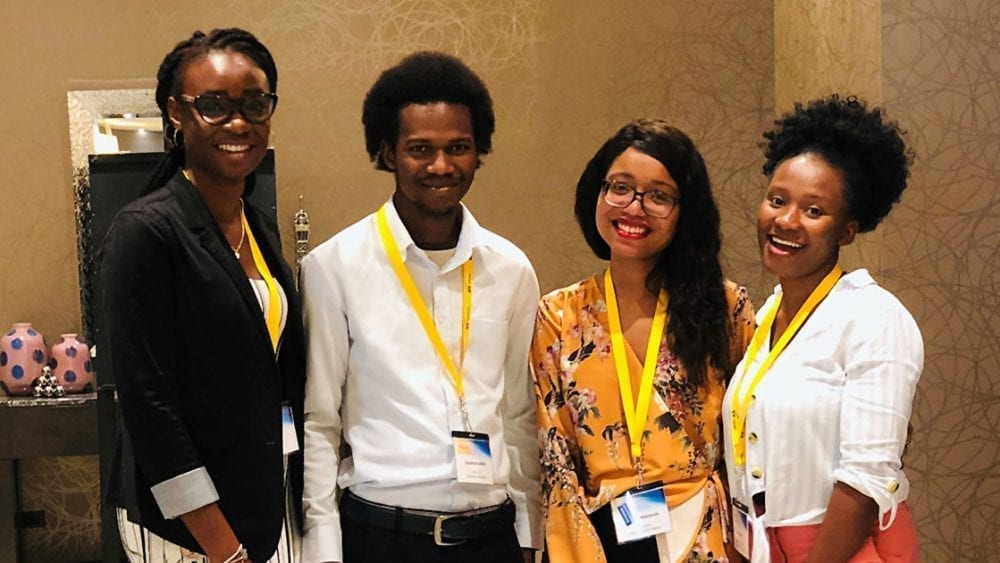The 71st IPAC Annual Conference, held in Winnipeg, Manitoba from August 18 to 21, 2019, featured three days of talks from renowned professionals centered around the streams of Public Sector Transformation, Innovation and Disruption, Reconciliation in Action, and Digital Government.
The Next Decade of Public Sector Disruption
In her keynote address, Hillary Hartley, Chief Digital Officer and Deputy Minister for Digital Government, Ontario Public Service, highlighted the importance of putting the user at the centre of government transformation especially where technology, information and data management are involved. Government needs to meet users where they are, making government platforms and services accessible, simple, and easy to use, and collaborating with users to achieve identified goals.
Her keynote stressed the importance of designing privacy, security and accessibility into government platforms and services. She called for responsible data management, scalable and interoperable platforms, empowered multidisciplinary teams and organized and flexible leadership.
Her presentation closed with a number of tips including:
- Obsess over user needs
- Be agile and iterative
- Work out loud
- Be better at communicating. It’s not just for when there’s something to announce.
- Use data – measure everything, rely on evidence and encourage your team to use the data
- Be prepared to fail – failure is inherent. Small failures prevent us from making big failures.
- Challenge everything.
- Digital service teams should constantly ask questions and leaders should expect people to challenge them.
- Embrace the chaos – the cornerstone of empowering and enabling teams is trust and trust can be messy. Especially in digital organizations but ensure your team feels supported.
- Be unreasonably aspirational.
In conclusion, we do not all need to be technical experts but we can get familiar with the world of digital and aim to get things done easier, simpler and faster. She invited feedback on Ontario’s open source digital action plan available at ontario.ca/digitalplan.
Artificial Intelligence, Automation, Analytics, and Data Management
Some of our take-aways:
- Think outside the box when it came to technology, data and Artificial Intelligence.
- Think through the different problems that you face in the workforce rather than believing that everything can be solved with AI.
- Consider using analytics, proper data management, qualitative and quantitative research for problem-solving
- Identify ways in which new technological developments can augment or support your work, rather than being a replacement.
A few questions for reflection:
- What is the value of innovation in the public sector?
- Is it true that AI will take over our jobs in the near future?
- How can public servants leverage on their current strengths?
Ideas, Tools and People
The Ideas
Winners of the Vanier Medal reflected on the Future of Public Service – the values and leadership that the public service will require in the future, their own expectations and offered advice to young professionals in the public service, stressing the importance of balancing politics and public service.
The Tools – The Drivers of Public Service Transformation
True government transformation is unlikely to happen without taking risks. For transformation to happen, you need to break away from the status quo, build relationships, embrace external collaboration, share failures and widen your lens while also examining the risks involved and acknowledging that even doing nothing is a policy choice.
The People – Attracting and Retaining a Transformative Workforce
It is not apparent to those outside the public sector that it is a great place to work! As the public sector is in competition for talent with other sectors, in order to get the best and to make public sector employment more attractive to tomorrow’s workforce, how the public sector is being advertised and how new talent is engaged need to change. It is important to understand the workforce and their motivations, looking out for traits such as resilience, emotional intelligence and allowing staff to bring different talents forward.
Conclusion
The conference was a valuable event for us as upcoming professionals aspiring for public service activities. It enabled us to reflect on our current skills and determine aspects of training that are required for the not too distant future.
We finished the conference feeling inspired and excited by the insights, learning and competencies gained. We are looking forward to applying them in our studies and work going forward.
Photo (left to right): Eseohe Ojo, Nigeria, University of British Columbia; Sulaiman Jalloh, Sierra Leone, University of Regina; Dercia Materula, Mozambique, University of Calgary; Bintu Jabbie, Sierra Leone, University of Regina
The ALT Scholarship Program is funded by the Government of Canada through Global Affairs Canada and by Mastercard Foundation. It is managed by CBIE in partnership with the Institute of Public Administration of Canada and in collaboration with the African Association of Public Administration and Management and the Canadian Association of Programs in Public Administration.



Comments are closed.